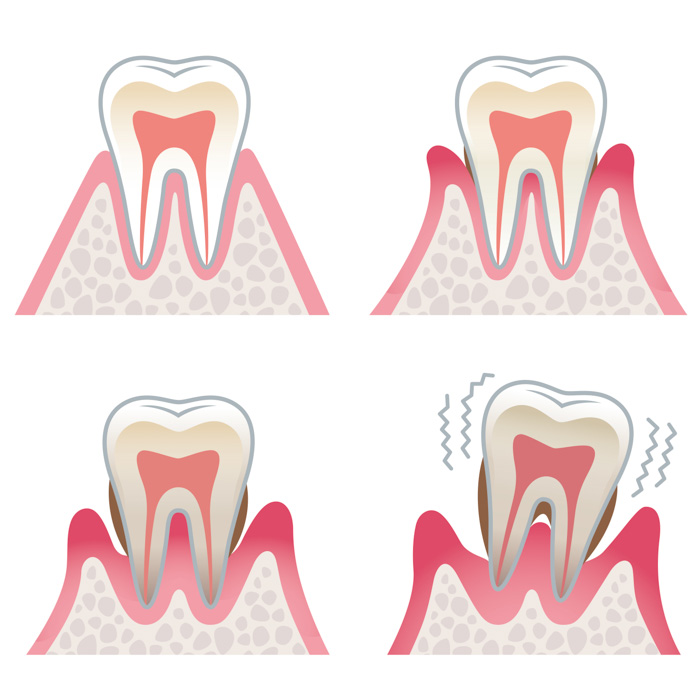Dental Services
Periodontal therapy

Unfortunately, it is common to find that many people are affected by periodontal or gum disease without knowing it, since it is usually asymptomatic. Plaque and calculus (tartar) cause inflammation of the gums, commonly known as gingivitis. If the plaque and calculus are removed and the teeth are kept clean, the inflammation will subside and the gums will return to a healthy state. In time, if plaque and calculus remain on the teeth, the inflammation may cause a loss of bone that supports the teeth. This can eventually lead to tooth mobility and in severe cases, tooth loss.
In order to diagnose periodontal disease, the space or pocket depth between the tooth and gingival tissues is measured. Health is indicated by probing depths of 3.0 mm or less. Nevertheless, incidence of bleeding and inflammation, levels of plaque and calculus (tartar), and prevalence of bone loss and mobility must also be evaluated in order to obtain a proper diagnosis.
Periodontal disease may be mild, moderate or advanced. It may also be localized or generalized, acute or chronic. Early diagnosis can be treated with conventional dental cleanings, proper home care and regular maintenance (at least twice a year). Later diagnosis may require specialized dental cleanings referred to as periodontal scaling and root planning. The affected area is anesthetized or numbed and disease is removed by scaling and planning (the root surfaces) while the pocket is flushed with an irrigant. Following a period of healing, the affected areas are reevaluated. At times further treatment may be required.
Regular dental cleanings and periodontal evaluations are essential to maintaining a healthy mouth and body.